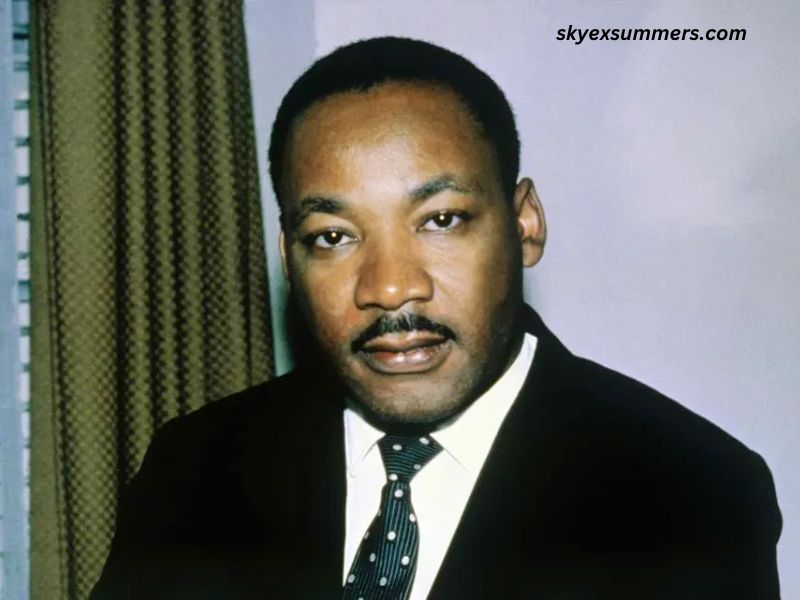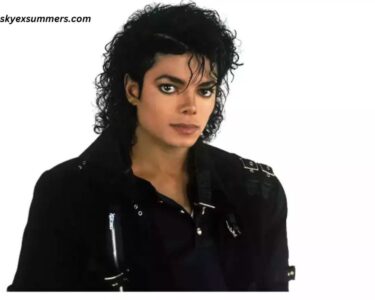Martin Luther King Jr. was one of the most influential figures in American history. His unwavering commitment to civil rights, equality, and social justice left an indelible mark on society, particularly in the United States. As we reflect on his life and legacy, one question often arises: How Old Would Mlk Be Today? Understanding his birthdate, the historical context of his life, and his enduring impact allows us to better appreciate the profound influence he has had on the world.
Martin Luther King Jr.’s Birthdate
Martin Luther King Jr. was born on January 15, 1929, in Atlanta, Georgia. He was born during a time when racial segregation was entrenched in the United States, and African Americans faced systemic racism and discrimination in almost every aspect of their lives. King’s early life was marked by the difficulties faced by African Americans during the Jim Crow era, yet his intellect, compassion, and determination would eventually lead him to become the leader of the Civil Rights Movement.
Determining How Old Would Mlk Be Today
To calculate How Old Would Mlk Be Today, we simply subtract the year of his birth, 1929, from the current year, 2024. Here’s the calculation:
2024 – 1929 = 95 years old.
So, as of January 15, 2024, Martin Luther King Jr. would have turned 95 years old. Had he lived longer, he would have celebrated his 95th birthday this year. His untimely death in 1968 at the age of 39 left the world wondering what further contributions he could have made, and how the course of American history might have been shaped had he lived into his later years.
Martin Luther King Jr.’s Legacy
Despite his short life, Martin Luther King Jr. made an immense impact on society, and his influence remains felt today. King was instrumental in leading the fight for civil rights and social justice in the 1950s and 1960s. His leadership and philosophy of nonviolence helped to shift the national conversation on racial inequality and propelled forward significant legal and social changes.
The Civil Rights Movement
Martin Luther King Jr. emerged as a leader during the Montgomery Bus Boycott of 1955–1956, which was sparked by Rosa Parks’ arrest for refusing to give up her seat to a white person on a segregated bus. King’s role in this boycott marked the beginning of his public leadership in the Civil Rights Movement, and it cemented his status as a champion of justice. King’s philosophy of nonviolent resistance, inspired by Mahatma Gandhi, was a cornerstone of the Civil Rights Movement.
King’s “I Have a Dream” speech, delivered on August 28, 1963, during the March on Washington for Jobs and Freedom, remains one of the most iconic speeches in American history. The speech called for an end to racism, segregation, and inequality, and it envisioned a future in which all people, regardless of race, could live together harmoniously.
King’s efforts played a key role in passing landmark legislation, including the Civil Rights Act of 1964 and the Voting Rights Act of 1965, both of which outlawed discrimination based on race, color, religion, sex, or national origin and sought to protect the rights of African Americans to vote. These legislative victories represented a monumental step toward achieving racial equality and social justice.
Global Influence
Though King’s primary focus was on the racial struggles in the United States, his message of peace, justice, and equality resonated around the world. His advocacy for nonviolent protest influenced global movements for freedom and independence, from the anti-apartheid struggles in South Africa to the pro-democracy movements in Eastern Europe.
His message of peace, justice, and equality also reached international leaders, such as Nelson Mandela, who later credited King’s teachings with inspiring his own activism against apartheid. Martin Luther King Jr.’s ability to transcend national borders to inspire global movements has solidified his place as one of the world’s most revered figures in the fight for human rights.
What Would MLK’s Impact Be Today?
How Old Would Mlk Be Today, he would undoubtedly continue to be a powerful advocate for justice, equality, and civil rights. The challenges King confronted during his lifetime are still present in many ways today, as the fight for racial equality is far from over.
The Fight Against Racial Injustice
King’s efforts were primarily directed at dismantling the legal structures that upheld racial segregation and discrimination, yet racial inequality persists in various forms. Issues such as police brutality, racial profiling, voter suppression, and economic inequality remain deeply rooted in society. As of 2024, Black Americans continue to experience disparities in education, employment, housing, and healthcare—issues King passionately spoke out about during his life.
King’s vision of a “beloved community,” where people of all races, ethnicities, and backgrounds live in harmony, would still serve as a guiding principle in today’s struggles for racial justice. His ideas about economic justice would likely lead him to speak out against the growing wealth gap and advocate for policies that address the systemic economic inequality faced by marginalized communities.
King’s Influence on Modern Movements
King’s message of nonviolence and peaceful resistance has influenced contemporary movements such as Black Lives Matter and March for Our Lives, among others. These movements, while emerging in a different era, share King’s commitment to addressing social injustices and advocating for change through peaceful protest and civil disobedience.
In particular, Black Lives Matter, founded in 2013, is a direct descendant of King’s civil rights activism. The movement calls attention to police violence against African Americans and aims to challenge the broader systems of racial injustice that continue to plague society. Although the methods and circumstances of modern movements differ, the core principles of nonviolent resistance and the quest for racial equality remain central to both King’s legacy and today’s activism.
How Would MLK Respond to Modern America?
If How Old Would Mlk Be Today, he would likely be encouraged by the progress made since the Civil Rights Movement, but also disheartened by the persistent inequalities that still exist. King’s belief in the power of education, empowerment, and collective action would continue to drive his activism, focusing on addressing the root causes of systemic inequality in society.
King’s legacy has also inspired politicians and leaders to continue advocating for civil rights and social justice. While much work has been done to achieve the goals of the Civil Rights Movement, King would likely remain steadfast in his belief that the work is far from complete.
King’s philosophy was rooted in optimism, faith, and love for humanity, but he was also a realist who recognized the difficulties involved in creating lasting change. He would likely be focused on building coalitions and fostering solidarity among communities to tackle pressing issues like racial inequality, poverty, healthcare access, and environmental justice.
Conclusion
While we will never know exactly How Old Would Mlk Be Today have shaped the world in his later years, his legacy endures. He would have turned 95 years old in 2024, but his spirit lives on through the movements, policies, and ongoing struggles that continue to advocate for racial and social justice.
The question of How Old Would Mlk Be Today is more than just a calculation of his age—it is a reminder of the work he began and the responsibility each of us carries to continue his fight for justice. King’s life and message continue to inspire people around the world, reminding us that the journey toward equality is long, but each step forward matters.
As we reflect on King’s life, it’s crucial to recognize that the fight for justice is not over. Whether through marching in the streets, voting for change, or standing up against injustice, we honor Martin Luther King Jr. by carrying on the work that he started. His dream of a world where all people are judged by the content of their character, not the color of their skin, is a vision that remains relevant today and must be kept alive for generations to come.



